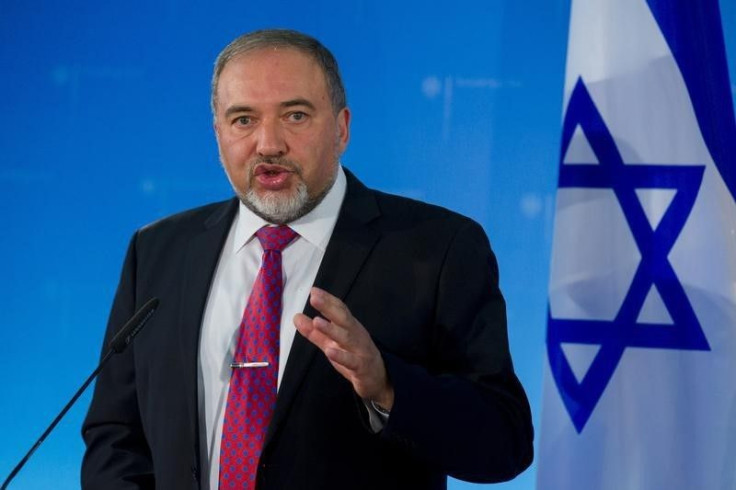Israel's Foreign Minister Urges Government To Encourage Departure Of Arabs To Future Palestinian State

Israel’s Foreign Minister Avigdor Lieberman on Friday told the government to encourage the transfer of Arab citizens to a future Palestinian state by offering them “economic incentives,” according to media reports. The “peace plan,” which was reportedly published on the website of the Lieberman’s right-wing party Yisrael Beiteinu, came just a week after Prime Minister Benjamin Netanyahu approved a draft legislation to declare Israel a Jewish state.
“As for Israeli Arabs, any agreement must include a plan for territorial and population exchange… An arrangement of this kind with the Palestinian state will allow Israeli Arabs who do not identify with the State of Israel to become part of the Palestinian state,” Lieberman reportedly wrote, adding that such an arrangement would also help Palestinians living in Israel resolve the issues of “duality and divided loyalties.”
“Israel should even encourage them with economic incentives,” Lieberman reportedly wrote in the document, which was presented as a manifesto for elections to be held in 2017.
Lieberman, whose party forms a major part of the Netanyahu-led coalition government, has frequently called for Arab Israelis to sign a “loyalty oath” and reportedly described the Arab members of the Israeli parliament who met with Hamas leaders as “terror collaborators.”
However, in his manifesto, he reportedly argued that although his party had not given up on the idea of a “Greater Israel,” a territorial compromise was needed to ensure peace in the region.
“In the argument over the unity of the land versus the unity of the people, the latter takes precedence,” Lieberman wrote. “There can be no compromise over the unity of the people and we will never be able to recover from the loss of this unity.”
The publication of the manifesto comes at a time of heightened tensions in the occupied West Bank region, which has witnessed several violent clashes over the last month. In recent weeks, conflict over the status of the disputed Al-Aqsa mosque and Temple Mount compound has further intensified, leading to the deaths of several Israeli and Palestinian civilians.
© Copyright IBTimes 2024. All rights reserved.












